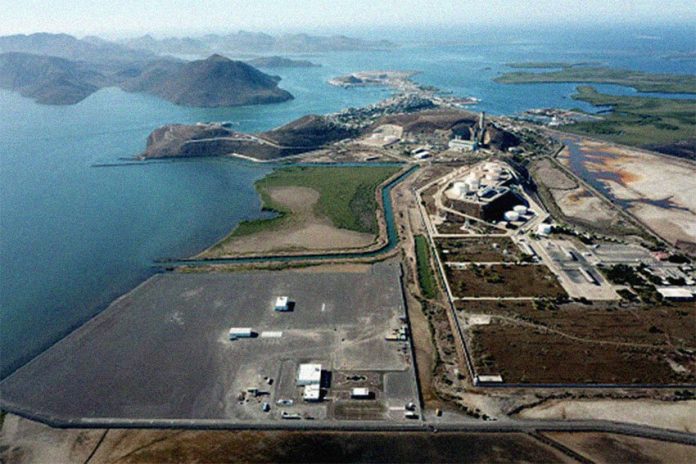Three-quarters of the participants in a referendum on a controversial fertilizer plant in Sinaloa voted in favor of the US $5-billion project on Sunday.
Almost 40,000 people across three municipalities cast a vote in the referendum to gauge support for an ammonia and urea plant in Topolobampo, a port town 20 kilometers southwest of Los Mochis.
Adult residents of Ahome, the municipality where Topolobampo is located, and neighboring Guasave and El Fuerte were permitted to participate in the federally-organized vote. Just under 76% of voters supported construction of the plant; turnout was 13%.
Two-thirds of voters in urban areas voted in favor of the project, while 80% of rural dwellers backed it. Almost 2,300 people in Topolobampo voted, with 54.5% supporting the project.
Construction of the plant by the company Gas y Petroquímica de Occidente (GPO) began in August 2018 but a federal judge halted the project in March 2019 due to environmental concerns. In June that year President López Obrador called for a referendum on the project to be held, a proposal he renewed in August 2020.
Many fishermen have said the operation of the plant would cause irreparable damage to the Santa María, Topolobampo and Ohuira lagoons and restrict the area in which they can work.
Environmental activists said that marine life such as turtles and bottlenose dolphins would be adversely affected, while the head of the federal government’s Natural Protected Areas Commission said in 2019 that having an ammonia plant so close to lagoons that are protected by the Ramsar Convention on Wetlands of International Importance “is not possible.”
GPO, a subsidiary of Swiss-German engineering, procurement and construction group Proman AG, has rejected claims that the plant’s operation would damage the environment.
The company and supporters of the project have said the fertilizer plant is needed because ammonia production has not kept up with growing demand. As a result, imports have increased and farmers have had to pay more for fertilizer.
Business groups welcomed the referendum result.
“… This is going to be a boost for the economy, we need jobs to be created,” said Francisco Álvarez Aguilar, president of the Culiacán branch of the National Chamber for Industrial Transformation.
Diego Castro Blanco, president of the Culiacán branch of the National Chamber of Commerce, also said the plant will benefit the economy. He acknowledged the concerns of the project’s opponents but stressed that industrial development is necessary for economic growth.
“I believe that people voted for development, they voted for the opportunities these investments generate,” Blanco said.
For his part, the head of Sinaloa business group CEES rejected the use of referendums to decide whether infrastructure projects should go ahead or not.
Guillermo Gastélum Bon Bustamante said projects must be allowed to proceed if they comply with the requirements established by the law. He said that Proman AG has shown in other countries that it has the capacity to operate fertilizer plants safely.
The federal government has held several referendums on large-scale projects, some of which have led to their cancellation. Such was the case with the previous government’s Mexico City airport project and a brewery in Mexicali, Baja California.
With reports from El Universal and El Informe Diario
